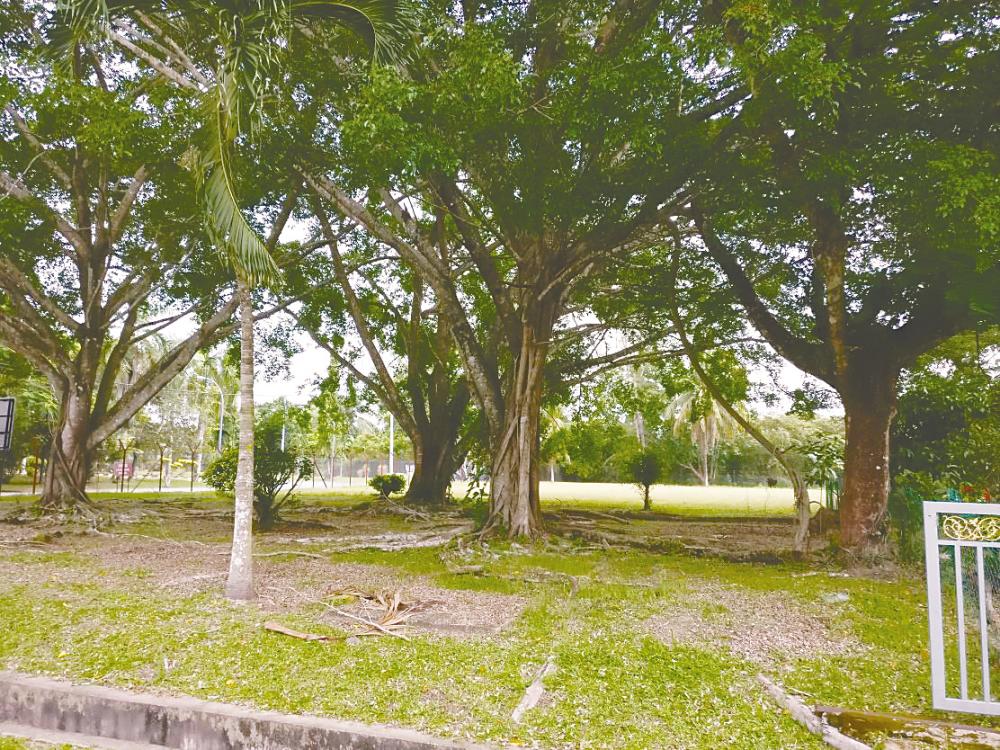WE have just recovered from another period of man-made seasonal haze which lasted for almost three weeks. It was a trying time as we had to endure the putrid smell and the clouded view. It was even worse for those with respiratory disorders. Without the sun our ability to produce vitamin D was also hindered. Thank God for the Northeast monsoon that blew the haze southwards and brought us rain.
My husband and I, who are KLites, decided to settle down in Malacca in 2012, where we could buy an affordable bungalow. All around our house we have planted shade trees, fruit trees and flowering plants. As we sat at the patio of our house surrounded by our little forest, the haze then with an API reading of 120-180 did not seem to exist. This is what we experience when we are within our green enclave, but once we step out into the open, the haze hits us hard.
Salsabil Gul of Shah Alam wrote “Our jungles need a break from human activity to heal”. She is right, but human greed is more prevalent than logical thinking. The burning forests of the Amazon and in Indonesia (Congo and Siberia) too may have subsided, hopefully too the peat fires in Malaysia, but there is still no assurance that the torching of forests will stop.
Most people know trees produce oxygen and absorb carbon dioxide, but many do not realise that trees function as dust absorbers. A documentary several years ago showed the result of a study on a row of houses on a busy street. They planted a row of almost matured silver birch trees in big plant boxes in front of a row of houses, while on the nearby side of the road, no trees were planted. After a period, they measured the dust concentration on the surface of the TV screens in all the houses. They found houses with the silver birch trees, whose leaves had fine hairs, had much lower particulate matter (dust), compared with the houses without. This study showed that to reduce the effects of the haze and other sources of air pollution, the best for us to do is to plant suitable trees.
In all the hospitals I managed, I planted a lot of trees with minimal budget. Most of the trees were grown from seeds or cuttings or I acquired them for free from nursery owners. I made sure I didn’t use my hospital budget. At Tengku Anis Hospital where I was the hospital director from the end of 1998 to 2004, I managed to create a forest with the support of our state health director, Datuk Dr Pius Premaraj, and also with the generosity of a local contractor, a 0.8km sand-based jogging track was created in the midst of this forest.
On the last day of my 34-year service with the Ministry of Health at Hospital Sultanah Bahiyah Hospital, Alor Star, together with my staff and family and friends, we planted about 30 chokanan mango trees and several banana and coconut trees in the vicinity of the bare retention pond behind the hospital. A year later and until now, the staff are enjoying the fruits of our labour.
I have not only planted trees at hospitals that I managed, but also at health clinics, mosques, graveyards, schools, public fields, jungle verge and roadsides. It doesn’t cost much when you have the passion and care to grow them from seeds and cuttings or seedlings. So let us all create a forest or a mini-jungle wherever there are vacant plots and spaces. It is much better if we can establish a food forest, especially since our country still depends on food imports.
Living or being in a forest atmosphere is said to be able to reduce one’s blood pressure and gives one a sense of tranquillity. Therefore working or studying within forest settings would improve a person’s health and well-being. If schools are surrounded by forests or mini jungles, and if the haze reappears, perhaps we would not have to close schools.
By growing these forests, we also:
» Produce more oxygen for our earth, (and not just in our neighbourhood)
» Reduce air pollution,
» Reduce flash floods and soil erosion,
» Contain water and reduce occurrence of droughts,
» Reduce the overall temperature,
» Improve soil fertility (enriched with good and effective micro-organisms),
» Produce habitats for wildlife, the bees and other plants,
» Produce more food.
For Muslims, growing and taking care of trees, is considered a benevolent task. As long as the tree lives and provides all the above functions for mankind and other living things, even though we have long expired we will continue to accumulate good reward (pahala jariah).
Therefore let us all plant trees (suited for the locality and climate), be generous to fund and support planting programmes and watch over the trees we have planted. It is doable and we need to start now.
Dr Zorina Khalid
Malaysian Nature Society
Negri Sembilan/
Malacca Branch














